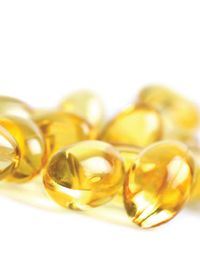A Lack of Vitamin D: Fear of Falling in Older Patients with Cancer
A recent study found that older patients with cancer had a greater risk of frailty, osteoporosis, and vitamin D insufficiency.
A Lack of Vitamin D: Fear of Falling in Older Patients with Cancer

Aging comes with a wide range of health challenges, including muscle loss and the risk of falls. When you add a cancer diagnosis to the mix, those challenges increase. However, there are ways that patients with cancer can reduce their risk.
In a recent study presented at the 2017 Cancer Survivorship Symposium, researchers from MD Anderson Cancer Center in Houston examined the prevalence of vitamin D insufficiency and risk factors for falls in patients aged 65 or older undergoing active cancer care for gastrointestinal, urologic, breast, lung or gynecologic cancers.
They found that these patients were more likely to experience frailty, osteoporosis and vitamin D insufficiency, raising the possibility of injury-causing falls.
“Sixty percent of patients with cancer are over the age of 65, and that number is going to grow,” Beatrice J. Edwards, MD, MPH, FACP, associate professor geriatric medicine and author on the study, said in an interview with Oncology Nursing News. “These unique issues that they present have to be addressed in order to give them the best quality of life possible.”
The study was conducted by giving 305 patients, both men and women, a comprehensive geriatric assessment, including cognitive, functional, nutritional, physical and comorbidity assessment. Researchers also examined bone density and vitamin D.
Eighty percent of patients had low bone mass and osteoporosis; 53% experienced frailty; 48.8% had vitamin D insufficiency; 37% experienced mild cognitive impairment; and 33% had dementia.
In addition, 26% of patients studied had one or more falls in the six months prior to the study; women had a higher fall rate.
“Some of the changes that they are experiencing with aging and cancer care are not necessarily irreversible,” she said. “There are things that the patients can advocate for themselves in order to remain on their feet, independent, for as long as they’re going to be here.”
Edwards said older patients can reduce their risk of frailty by seeking good nutrition, as well as engaging in exercise, both aerobic and resistance or weight training, Vitamin D insufficiency can be tackled by taking supplements. “Vitamin D reduces falls by 50%, and we know it has some anti-cancer effects,” Edwards said. “This is a treatable cause of falls. To me, it’s a no-brainer,” she added.
Edwards’ recommendation for vitamin D supplements is vitamin D3, 2000 units a day, which she said patients with cancer will not get in a multivitamin. If patients are deficient, then that regimen would need to be replaced with high-dose vitamin D.
Patients can take treatment for osteoporosis. Calcium, vitamin D and osteoporosis medications like denosumab (Prolia), zoledronic acid or oral bisphosphonates can reduce the risk of fractures by 50%.
Muscle loss or sarcopenia also affects older patients with cancer. “Even older adults without cancer will lose up to 40% of their skeletal muscle by the age of 70, unless they are doing weight training,” said Edwards. “When you add chemotherapy to their regimens, which they need in order to survive, you just aggravate the muscle wasting.”
If a patient notices changes such as memory loss, weight loss or balance problems they should tell a medical professional.
“If they feel unsafe on their feet — we call that ‘fear of falling’ — they should bring that up because then the oncologist can refer them to physical therapy, and hopefully check their vitamin D level,” Edwards said.
Overall, the authors on the study noted that greater awareness and targeted interventions would be beneficial in preventing falls that lead to injury.


